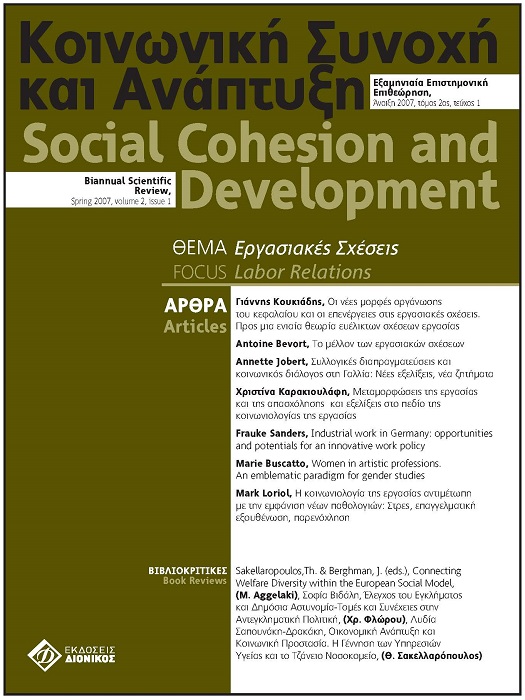The future of industrial relations

Published:
Apr 13, 2016
Keywords:
Work industrial relations democracy trade unions
Abstract
The end of Keynesian thinking and the advent of neoliberal policies that induced globalization, the new management models and technological changes have all confined the role of state regulation. At the same time they have also enhanced flexibility in working patterns. This change is more evident in the French industrial relations model, due to the importance of the state and the weakness of trade unions. Based on the French experience, the paper attempts to depict the future evolution of industrial relations, beyond current changes, by putting forward two possible scenarios; the state-market and the democratic. The argument presented by the author supports the second one, yet the paper shows that the first one seems more possible based on current trends.
Article Details
- How to Cite
-
Bevort, A. (2016). The future of industrial relations. Social Cohesion and Development, 2(1), 21–32. https://doi.org/10.12681/scad.9036
- Section
- Articles

This work is licensed under a Creative Commons Attribution-NonCommercial-ShareAlike 4.0 International License.
Authors who publish with this journal agree to the following terms:
- Authors retain copyright and grant the journal right of first publication with the work simultaneously licensed under a Creative Commons Attribution Non-Commercial License that allows others to share the work with an acknowledgement of the work's authorship and initial publication in this journal.
- Authors are able to enter into separate, additional contractual arrangements for the non-exclusive distribution of the journal's published version of the work (e.g. post it to an institutional repository or publish it in a book), with an acknowledgement of its initial publication in this journal.
- Authors are permitted and encouraged to post their work online (preferably in institutional repositories or on their website) prior to and during the submission process, as it can lead to productive exchanges, as well as earlier and greater citation of published work (See The Effect of Open Access).
Downloads
Download data is not yet available.


